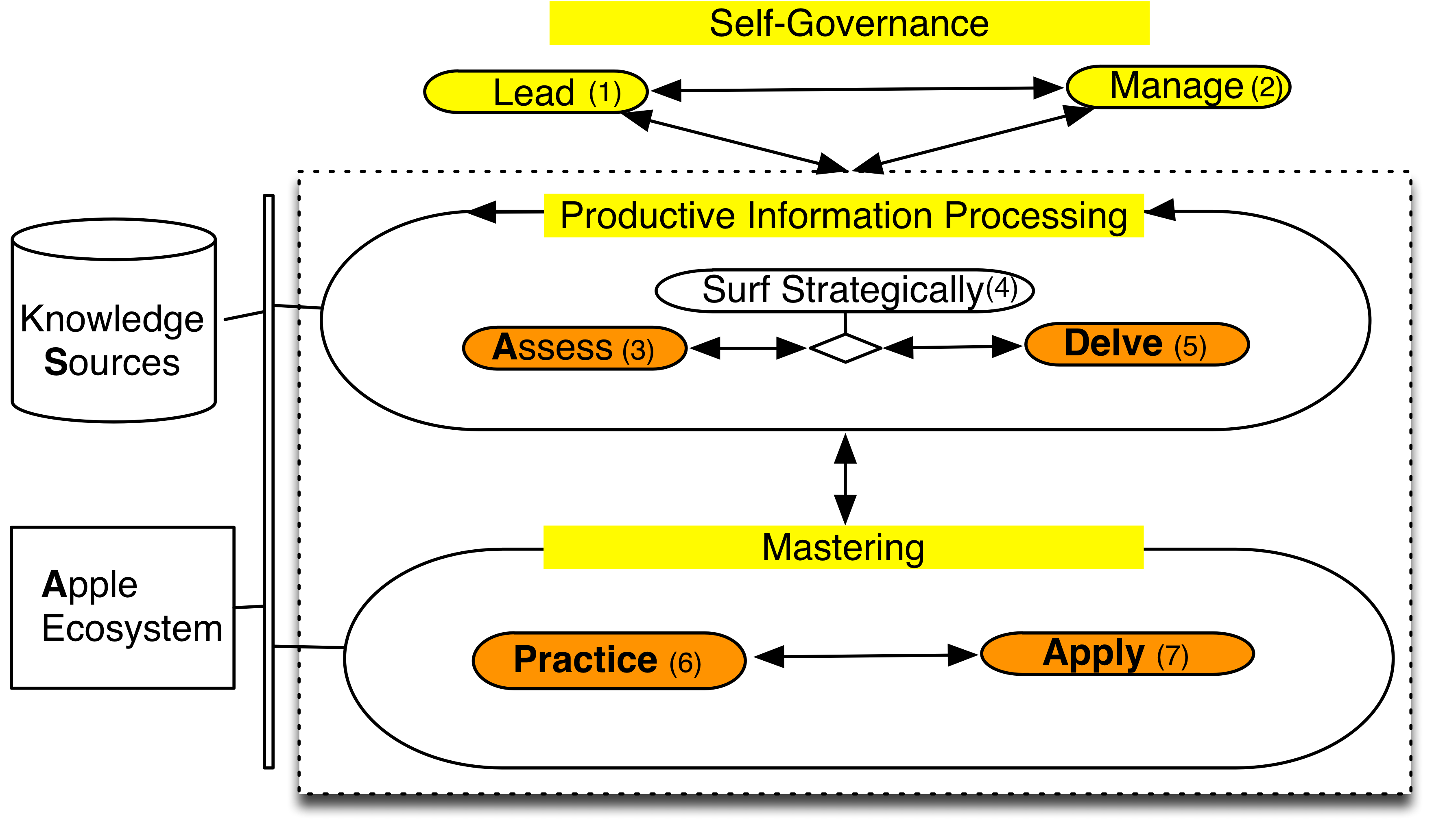On Monday, June 18, the complete version of Cognitive Productivity with macOS®: 7 Principles for Getting Smarter with Knowledge will be launched.
Cognitive Productivity books can be read as pro-active responses to the “post-truth” era. More generally, however, they are meant to deal with the fact that we are still in pre-meta-effectiveness times. “Meta-effectiveness” refers to the abilities and dispositions to use knowledge to become more effective, meaning better at understanding, solving problems, building products (including new knowledge) and living according to our values. Respect for truth is a subset of meta-effectiveness. One can have respect for truth and yet not use knowledge optimally.

Furthermore, there is far more to assessing the caliber of claims than assessing their veracity —their direct correspondence with reality. For instance, given two theories, other things being equal, we should prefer the more definite, parsimonious, general, extensible, coherent and criticizable account. When selecting knowledge resources, we should also consider their utility: how they relate to our values (goals and projects). We should also take into account their potency, i.e., the extent to which the knowledge might reshape our understanding — outside the echo chamber. (Caliber, utility and potency are the “CUP” criteria. We should seek “CUPful” knowledge.)
Meta-effectiveness serves the core purposes of human life, which is why the first principle of Cognitive Productivity with macOS is to “lead your life with knowledge”. The value of effectiveness was popularized by Steven Covey in his best-selling self-help book, The 7 Habits of Highly Effective People. Nevertheless, the prevalent ultimate explanation of human behavior is still hedonism: the view that humans ultimately attempt to optimize pleasure and pain functions (this overlaps substantially with utility theory). In his excellent book, Beyond Pleasure and Pain, E. Tory Higgins, argued that the two major sets of purposes of human life beyond hedonism are to seek truth and to be effective. I myself had argued against utility theory in chapter 3 of my Ph.D. thesis and against hedonism in Part 1 of Cognitive Productivity. I extended an AI-based concept of effectance: human brains are designed to engage in behaviours that boost effectiveness, even if they don’t explicitly realize it. While truth, and more generally understanding, are ends in themselves, they also serve effectiveness.
Meta-effectiveness, a deep constitutional problem of rational life, is not a binary construct. There is no end to the potential of self-improvement with knowledge and technology. Still, I believe that resolving to address the ideals of meta-effectiveness can introduce a discontinuity in personal development.
I hope the world comes to see “post-truth” within the more general framework of meta-effectiveness. This framework, described in Cognitive Productivity books, involves the productive use of information technology in accordance with scientific conjectures about the human mind. We must recognize, however, that cognitive science is still in its infancy. It has not yet adopted the concept of meta-effectiveness, or sufficiently focused on motivation and emotions. I firmly believe that research on meta-effectiveness can help advance the modern science of mind.
Caveats and Clarifications about Post-Truth and Cognitive Productivity Books
Cognitive Productivity books do not (yet) directly discuss “post-truth”. They are about using knowledge productively (meta-effectiveness). My claims in this post are that:
- Meta-effectiveness encompasses a rational mindset towards truth.
- Dealing with the issues of “post-truth” is required but not enough to ensure human or global welfare.
On the Publication History of Cognitive Productivity with macOS
Cognitive Productivity with macOS was first published on Leanpub, the world’s first and foremost lean publishing book and courseware store, where you can buy cutting edge e-books and courseware as they are being developed. By June 18, this sequel to Cognitive Productivity will also be available on iBookstore and most Amazon stores. The book was written in Markua, a flavour of Markdown, using BBedit, previewed with Brett Terpstra’s Marked2 app.
Whereas the first Cognitive Productivity book delves into cognitive science at length, Cognitive Productivity with macOS focuses on practical use of macOS to promote competence.
Speaking of truth, a previous version of this post announced the launch date as being June 23. It will be June 18 :).
More Specific Comparisons of Post-Truth and Pre-meta-effectiveness Eras
In an upcoming post I will publish illustrations that compare the post-truth conception of modern times with a pre-meta-effectiveness one.

2 thoughts on “A Book for Our “Post-truth”, “Pre-meta-effectiveness”, Times Launches on June 18”